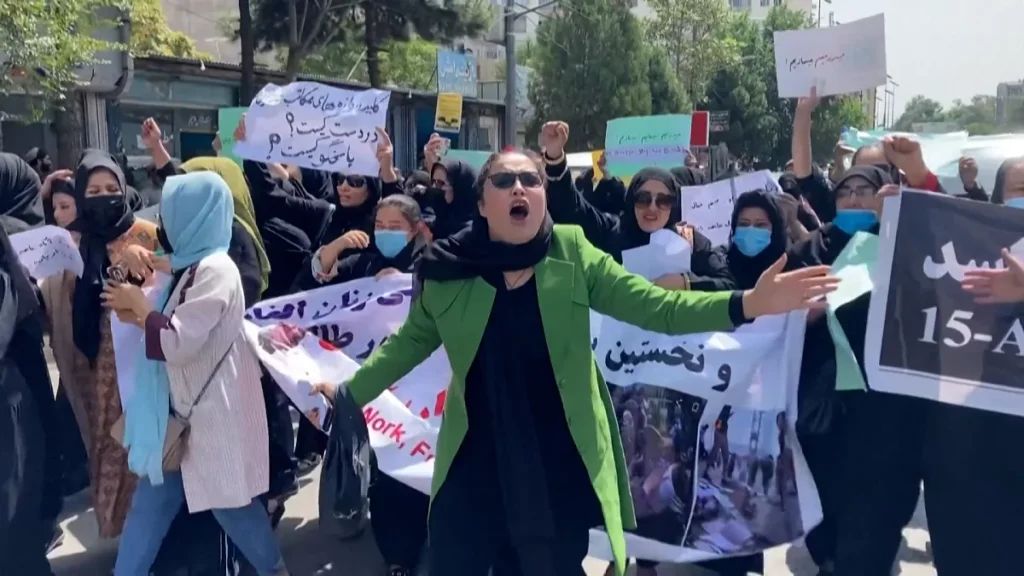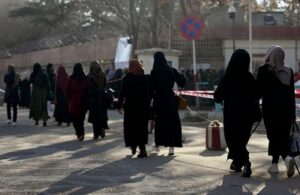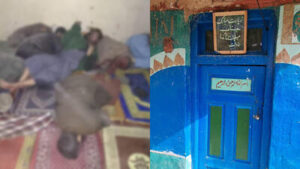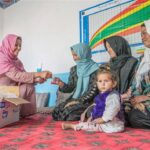Author: Mahdi Mozaffari
Throughout the tumultuous history of Afghanistan, Afghan women have engaged in a monumental struggle and resilience to secure their fundamental rights and achieve an equal status with men in all areas of social, political, and economic life. This struggle, rooted deeply in the history of Afghanistan, has been influenced by complex internal and external developments, including prolonged wars, changes in political regimes, and social and cultural transformations, and has always been accompanied by many ups and downs. Afghan women have consistently sought to establish their place in society and attain equal rights throughout history. Their struggles under various regimes and in the face of deeply traditional cultures demonstrate that Afghan girls and women are resilient and tireless in their quest for identity and recognition.
Women’s Struggles before the 1990s
Before the rule of the first caretaker government, Afghan women had a significant presence in various fields, including education, employment, and political participation. The first constitution of Afghanistan granted women equal rights with men, and women were active in many public and private professions. Their presence in universities and schools led to an increase in their political and social awareness, gradually enhancing women’s roles in important decision-making processes within the country. Despite these advancements, gender inequalities remained one of the main challenges facing Afghan society, with women in many rural areas and regions controlled by warlords having limited access to educational and health facilities. Nevertheless, there was hope for a better future for all Afghan women, and many women’s rights activists sought to expand women’s rights and freedoms across all areas of life.
Unfortunately, even these minimal advancements were fragile; with the rise of the caretaker government in the late 1990s, all women’s achievements quickly vanished. Those in power imposed strict and restrictive laws that excluded women from all social and political spheres, confining them to their homes. During the first term of the caretaker government, women were banned from education, work, and public spaces, forced to stay at home, and required to obtain a religious permit for even the slightest activity. These severe restrictions not only harmed women and girls but also severely impacted Afghanistan’s economy and development. However, Afghan women never surrendered; they continued their progressive activities secretly. With the fall of the first caretaker government’s authority in 2001, Afghan women regained hope and sought to reclaim their lost rights.
The Dawn of Hope and the Beginning of Transformations
The fall of the caretaker government in 2001, after years of oppression, heralded a new dawn of hope for the women of Afghanistan. With the establishment of the republican regime, a new chapter in the history of this country was written. The enactment of laws supporting women’s rights, the opening of schools and universities for girls, and the encouragement of women’s participation in political and social spheres were all significant steps towards improving the status of women. Afghan women, who had been deprived of active participation in society for years, were now eagerly pursuing their dreams. Although these transformations were slow and accompanied by numerous challenges, they reflected the strong determination of both the international community and the people of Afghanistan to create a better future for women.
Despite significant progress under the republican regime, the challenges facing Afghan women remained very serious and complex. Widespread insecurity, internal conflicts, pervasive poverty, entrenched gender discrimination, and patriarchal traditions continued to serve as major obstacles to realizing women’s rights. Rural and remote areas faced even more dire conditions due to a lack of educational and healthcare facilities. Additionally, traditional views and misconceptions about women’s roles in society made it difficult to change these beliefs gradually. Furthermore, inadequate infrastructure, administrative corruption, and a lack of equal job opportunities were among other challenges that Afghan women faced.
The Darkness Returns and Steadfast Struggle
Unfortunately, with the resurgence of the caretaker government in 2021, all the achievements of the past twenty years regarding women’s rights faced serious threats. The leaders of this government imposed severe restrictions on women, prohibiting them from education, work, public presence, and even leaving their homes without a male guardian. These actions not only violated women’s basic rights but also inflicted serious harm on the future of the country. Nevertheless, Afghan women did not succumb; they continued their protests and resistance for justice and equality. Women’s rights activists, human rights defenders, and international organizations united to amplify the voices of Afghan women to the world and to advocate for improvements in their situation. This struggle continues despite all hardships and dangers, with hope that one day Afghan women will achieve their equal rights in peace and security.













